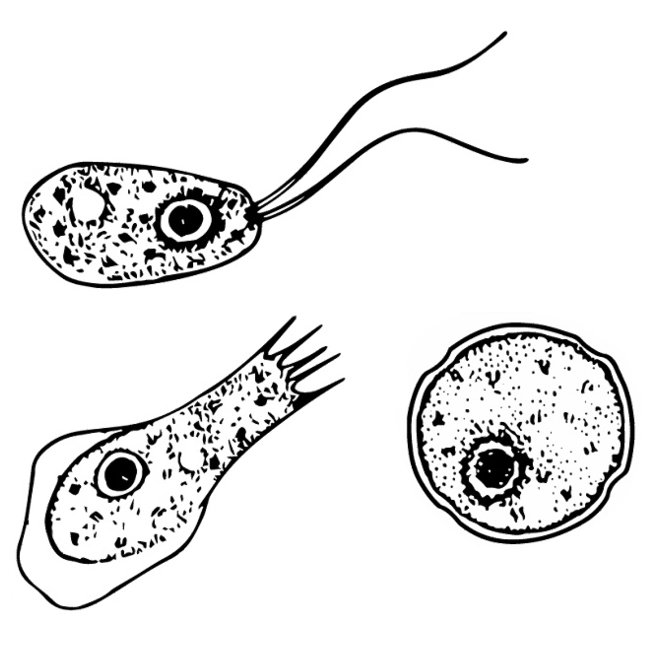Brain-eating Amoeba (Naegleria fowleri) is responsible for brain infection known as primary amoebic meningoencephalitis (PAM). The infection rate is very low but highly fatal. The infection is contacted through taking up water contaminated with N. fowleri through nose. Antibiotics and antifungals (including the anti- leishmaniasis drug miltefosine) are currently used to treat.
Naegleria fowleri commonly known as “brain-eating amoeba,” is responsible for rare but highly fatal brain infection known as primary amoebic meningoencephalitis (PAM).
This amoeba is usually found in soil and warm freshwater lakes, rivers, hot springs, and poorly maintained recreational pools with minimal chlorination and temperature regulation. It may reach brain to cause infection when water containing the amoeba enters up the nose. Affected individuals are mostly children and young people after having participated in activities in nontreated fresh and warm water bodies contaminated with these amoebae.
Infection rate is very low (about 3 cases per year in the USA) but the fatality rate exceptionally high in the range of 97%. A fatality has recently been reported in Kerala in India.
One cannot be infected from drinking water contaminated with this amoeba. Key to prevention is to avoid taking up water into the nose.
Some antibiotics and antifungals (including the anti- leishmaniasis drug miltefosine) are currently used to treat PAM but the success rate is not encouraging. Modulating proinflammatory cytokines are being considered as an additional immune therapy. Recent research suggests that cyanomethyl vinyl ethers may be effective against Naegleria fowleri but their safety and effectiveness is yet to be established through clinical trials.
***
Sources:
- CDC 2023. Naegleria fowleri — Primary Amebic Meningoencephalitis (PAM) — Amebic Encephalitis. Centers for Disease Control and Prevention. Available at https://www.cdc.gov/parasites/naegleria/index.html
- Chen C. and Moseman E.A., 2022. Pro-inflammatory cytokine responses to Naegleria fowleri infection. Front. Trop. Dis, 18 January 2023. Sec. Emerging Tropical Diseases. Volume 3 – 2022. DOI: https://doi.org/10.3389/fitd.2022.1082334
- Chao-Pellicer J. et al 2023. Cyanomethyl Vinyl Ethers Against Naegleria fowleri. ACS Chem. Neurosci. 2023, 14, 11, 2123–2133. Publication Date:May 11, 2023. DOI: https://doi.org/10.1021/acschemneuro.3c00110
***






































